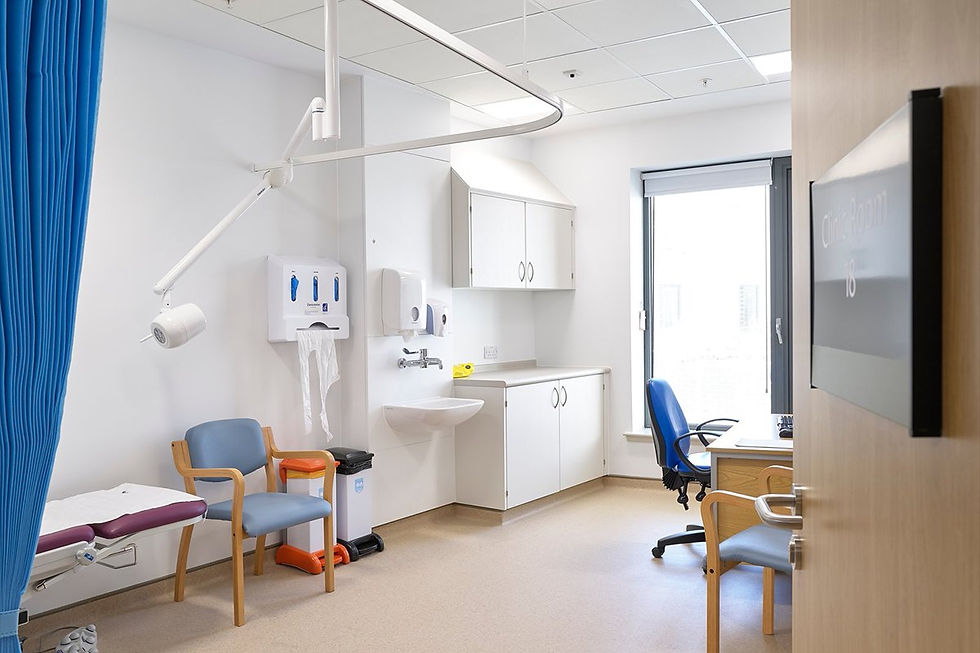Importance of healthcare specificity in the supply chain
- Future HealthSpaces
- Nov 9, 2021
- 3 min read

Healthcare as a service places huge value on the use of subject-expert specialists. You would not expect a paediatric oncologist to also be an effective vascular neurologist. In healthcare construction, we see a recognition of specialization amongst the design team and major contractors; most key architects and contractors working on the P22 framework, for example, have dedicated healthcare teams and often a dedicated business silo.
There is a recognition that building an effective healthcare space has a vast array of constituent factors that other construction sectors do not. There is an extra level of complexity to project design and much greater consequences for project failure. Program delay can mean the delay in provision of potentially life-saving new healthcare services. Poor quality can mean loss of life.
Within the subcontract and manufacture supply chain, however, the emphasis on healthcare expertise is often lost. In project procurement, a track record in healthcare might be sought but there is often a lack of understanding about what a successful track record in healthcare looks like and how it should be measured. There is also a broad assumption – an incorrect one – that should a company offer a ‘healthcare range’ this means that they have a product and service specifically designed for healthcare. The truth, however, is that the SMEs that make up the large part of the supply chain rarely have the resources to develop specific ranges and train their people in specialist services – they typically tweak standard offerings and market as healthcare-specific.
By way of an example, the difference that a sole focus on healthcare makes to project delivery is seen in our package: fitted furniture and bespoke joinery. There are many companies with the capacity to deliver furniture packages in schools and student accommodation. There are many companies that have a ‘healthcare range’. But there are very few companies that have a range designed from the ground up for true clinical functionality.
There is often a misunderstanding by non-specific companies of the fundamental requirements of a healthcare range. They might surmise that extra durability is the key and miss the fact that for many estate teams, replaceability is equally important. They might believe cleanable surfaces are the crucial factor and miss the need for an aesthetic that promotes patient wellbeing. It is no discredit to these companies – they can often create a stunning school fit-out or an impressive block of student accommodation where there is not the additional complexity of the healthcare sector. They are, however, unsuited to the healthcare construction market where a director-led, trust-driven focus in everything from product development to company strategy can make substantial differences to clinical functionality and positive design.
The key is understanding, not just knowledge. Companies with such a specific and direct focus have a much deeper level of understanding because each constituent employee within that company lives and breathes healthcare every day. A project manager in such a company recognises at first glance the infection control implications of a poorly designed detail and can highlight it early and avoid embarrassing and/or expensive variations. That is unlikely to happen where a project manager spends two thirds of their time constructing schools and has little understanding of the HTM and HBN manuals and their implications.
For these reasons, as we look ahead at a growing healthcare construction sector, it is essential that we recognise SMEs with a true healthcare bias in the supply chain. They can then be used in the design of new facilities which enables those companies to forecast for the future and provide greater support when construction begins. The alternative is a mismatch between design and delivery that undermines the effectiveness and rationality of the NHS estate.


